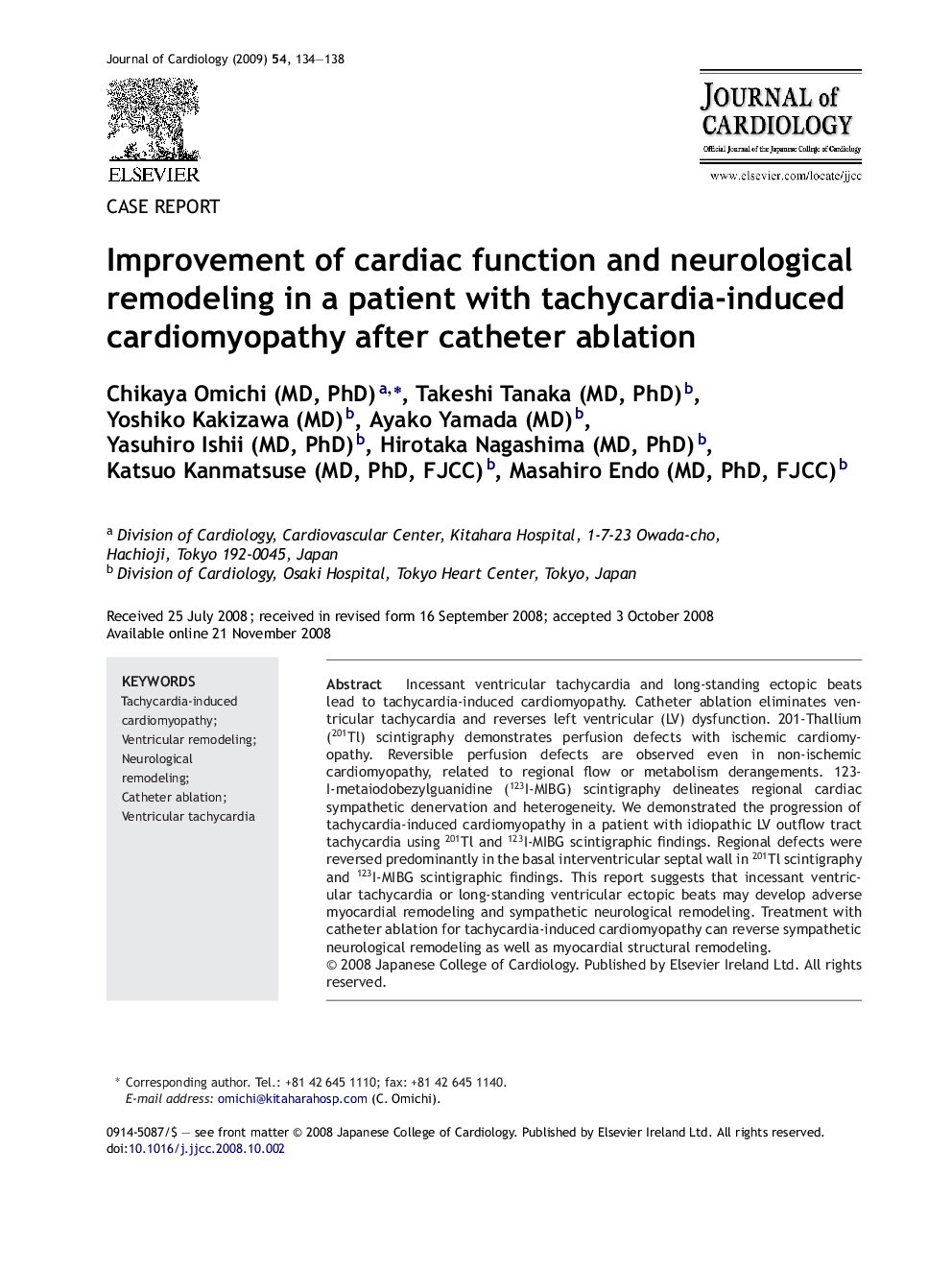| کد مقاله | کد نشریه | سال انتشار | مقاله انگلیسی | نسخه تمام متن |
|---|---|---|---|---|
| 2963760 | 1178573 | 2009 | 5 صفحه PDF | دانلود رایگان |

Incessant ventricular tachycardia and long-standing ectopic beats lead to tachycardia-induced cardiomyopathy. Catheter ablation eliminates ventricular tachycardia and reverses left ventricular (LV) dysfunction. 201-Thallium (201Tl) scintigraphy demonstrates perfusion defects with ischemic cardiomyopathy. Reversible perfusion defects are observed even in non-ischemic cardiomyopathy, related to regional flow or metabolism derangements. 123-I-metaiodobezylguanidine (123I-MIBG) scintigraphy delineates regional cardiac sympathetic denervation and heterogeneity. We demonstrated the progression of tachycardia-induced cardiomyopathy in a patient with idiopathic LV outflow tract tachycardia using 201Tl and 123I-MIBG scintigraphic findings. Regional defects were reversed predominantly in the basal interventricular septal wall in 201Tl scintigraphy and 123I-MIBG scintigraphic findings. This report suggests that incessant ventricular tachycardia or long-standing ventricular ectopic beats may develop adverse myocardial remodeling and sympathetic neurological remodeling. Treatment with catheter ablation for tachycardia-induced cardiomyopathy can reverse sympathetic neurological remodeling as well as myocardial structural remodeling.
Journal: Journal of Cardiology - Volume 54, Issue 1, August 2009, Pages 134–138